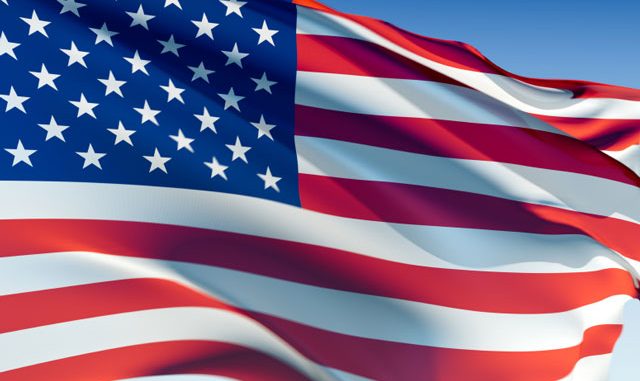
Antigone Xenopoulos, Stanford Review, November 27, 2018
An administrator encouraged Sigma Chi to take down the American flag flown in front of its house in order to improve its image on campus.
{snip} Sigma Chi sought to improve its image with the university so as to ensure its survival and the eventual lifting of its probation. Obviously, this aim was not realized. {snip} Nevertheless, some administrative advice extended to Sigma Chi during this effort is worth noting, even after the fact, for its anti-Americanism.
Pablo Lozano ’18 is the primary source for the following account. Other individuals, who asked not to be named, have corroborated it.
Lozano told that while on probation, Sigma Chi sought to make itself “an ally of the university.” An administrator assigned to serve as a liaison between Residential Education and Sigma Chi – let’s call him Mr. Z – was, in Lozano’s words, “supportive” in trying to help Sigma Chi outlast probation and “transparent” in explaining often obscure bureaucratic processes. {snip}
{snip} One night during Autumn 2017, Lozano recounted, Mr. Z was invited to eat dinner at Sigma Chi. While discussing improving the fraternity’s image with the university, Mr. Z offhandedly suggested that Sigma Chi remove the potentially discomforting symbol outside: the American flag flown in front of the house. Mr. Z urged Sigma Chi to consider the image being presented to the rest of campus by flying the flag out front. He furthered that if Sigma Chi wished to break away from stereotypes that plagued the house and to change its perception on campus, its members should contemplate un-hoisting the American flag.
{snip} Mr. Z’s recommendation insinuated not only that the flag made others uncomfortable but that its being flown tainted Sigma Chi’s reputation and, presumably, worsened its chance of survival. Lozano understood Mr. Z to imply that the American flag, as a symbol, could be intimidating, aggressive or alienating. Mr. Z’s tone further signaled to Lozano that he found the mere sight of the American flag to be offensive.
Lozano recounted that the more the house talked about Mr. Z’s suggestion, the more it bothered them. Many found the proposal weird. The remark was, according to Lozano, out of the blue and incongruent with the candid rapport they had shared with Mr. Z up and until then. Furthermore, they wondered, since when is an American flag flown at an institution in the United States offensive? Lozano later observed that right down the road from Sigma Chi, an American flag is flown outside Stanford’s Post Office. Similarly, he noted, an American flag is flown outside Green Library’s Bing Wing and was once flown outside Memorial Auditorium, which commemorates fallen Stanford soldiers from WWI onward. According to Lozano’s knowledge, Mr. Z raised no objections to the Dominican flag flown by a student from his bedroom window in Sigma Chi or to the Palestinian flag which was hung across the street at Columbae.
In protest of Mr. Z’s suggestion, the house declined to remove the flag, instead choosing to replace it with an even bigger one. Some members, of course, abstained from the discussion about and decision to purchase a bigger flag. The following day, by Lozano’s doing, Sigma Chi upgraded from a three-by-five-foot flag to a four-by-six-foot flag. The former flag was then framed and placed on display inside the house. This decision was, in Lozano’s words, a “silent but visible protest” against the classification of the American flag as a potentially stigmatizing symbol by a member of the Stanford administration.
Having laid out Lozano’s narrative of this incident, I will now offer my own commentary.
{snip} One could also reasonably consider the display of an authoritarian regime’s flag to be insulting and hostile – be it a flag representing Nazi Germany, The Confederacy, or Apartheid South Africa. One can likewise anticipate the classification of a sectarian flag as illegal – be it that of Catalonian or Chechen separatists. However, there is no reason why hoisting the American flag, on American soil, at an American institution, is offensive.
{snip} To classify the American flag on American soil as offensive or jingoistic, however, is an entirely separate phenomenon which implies the condemnation of the United States at large.
There is an evident aversion amongst private institutions in the Bay Area to affiliate or partner with the American government. Be it Google employees protesting collaboration with the military on AI development, the absence of the national anthem at Stanford’s 2018 graduation ceremony, the elimination of the American flag from student organization logos, or Stanford’s framing itself as a global rather than American institution, the pattern is clear. {snip}
{snip}